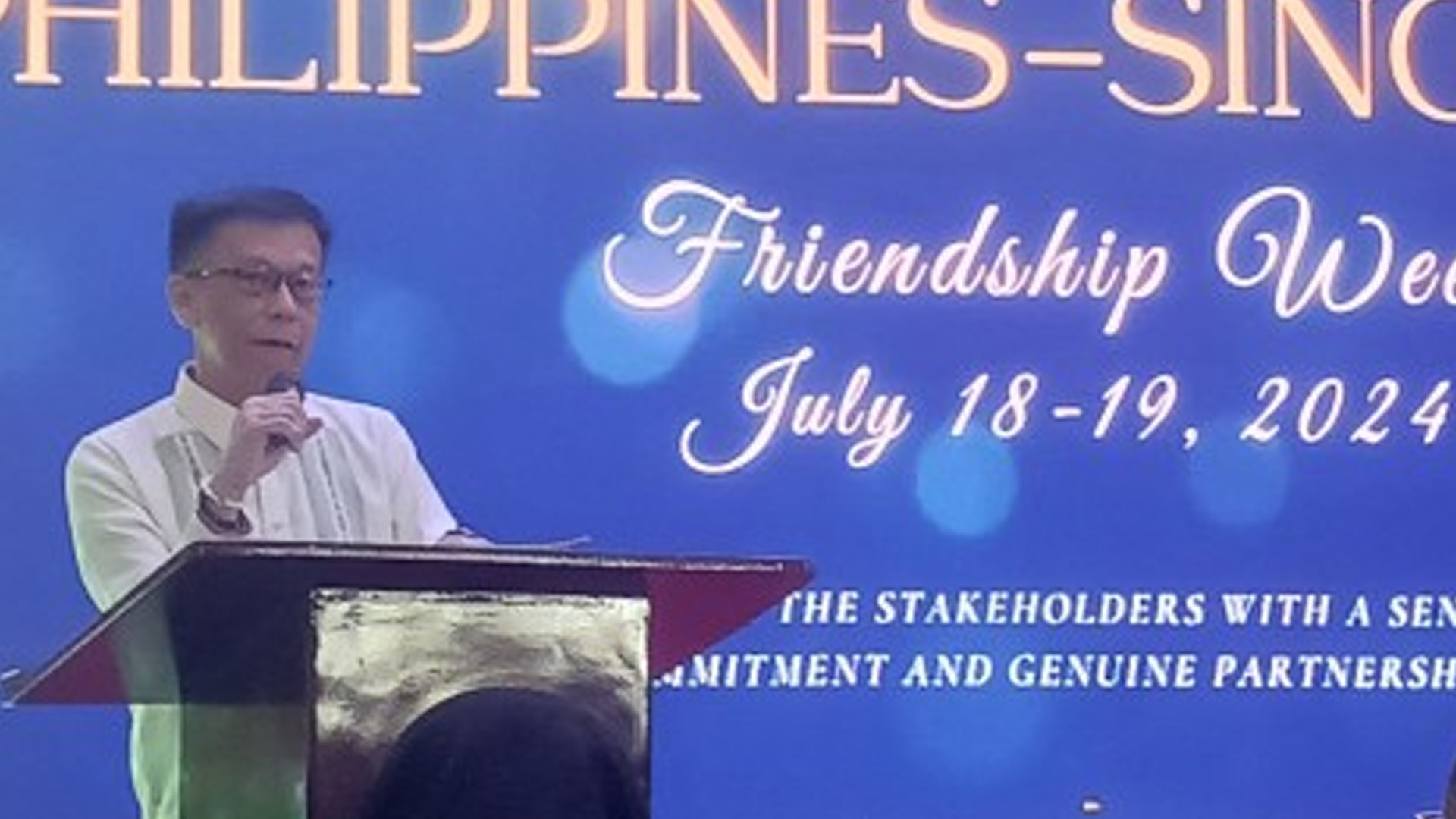The Department Of Migrant Workers (DMW) on Thursday thanked the Singaporean government for promoting the protection of overseas Filipino workers (OFWs) in Singapore as both nations celebrate Friendship Week.
In his speech during the opening of the celebration which will run from July 18 to 19 at the head office of DMW in Mandaluyong City, Secretary Hans Leo Cacdac expressed gratitude to Singapore for strengthening its laws that protect migrant workers, including OFWs.
“We are very thankful to the government of Singapore, a long-standing protector, promoter of harmonious relations and the rights of migrant workers OFWs in Singapore. We know for sure that OFWs basic human and employment rights are well respected,” Cacdac said.
The celebration was attended by Singapore Ambassador Constance See.
“In Singapore, there are access to labor mechanisms and administration of justice, access to justice, and they were first, in Singapore, to establish a home for OFWs where training and other activities to promote the welfare and protection of OFWs,” he added.
For her part, See said the Singapore government wants to make sure that the welfare and rights of migrant workers are always safeguarded, especially the foreign domestic workers.
She highlighted its justice system that implement harsher penalties for employers who abuse their employees, especially if they are migrant domestic workers.
“Any employer who is convicted of abuse of a migrant domestic worker is liable to face up to two times the maximum punishment for the offense. So if the offense is one year in jail, he will have to face two years in jail if the victim is a migrant domestic worker,” See said.
“Probably, we are the only country in the world that has such law, and we are committed and this shows our commitment to protecting migrant workers,” she added.
Currently, there are about 250,000 Filipinos living in Singapore.
Of this number, around 84 percent are OFWs –60 percent are non-domestic workers and the remaining 40 percent are in household services.
Both countries vowed to continue to deepen their bilateral labor relations.
Meanwhile, See said Singapore would need around 3,000 to 4,000 nurses and other allied medical workers which will be open for all nationalities including Filipinos, who are known for their skills and proficiency in the English language and the natural care for their patients, making them the most preferred by Singaporean employers.
See also thanked Filipino healthcare workers who stayed with them during the Covid-19 pandemic.
“We are thankful for the Filipino frontline staff, the nursing staff who have stood by us during the Covid-19 pandemic, many of them did not go back to the Philippines and decided to stay and we are very thankful for that,” she said.
The Philippines and Singapore diplomatic relations, established on May 16, 1969, have grown stronger in many key areas including trade and investment, security and defense cooperation, cultural exchanges and people-to-people relations. (PNA)







